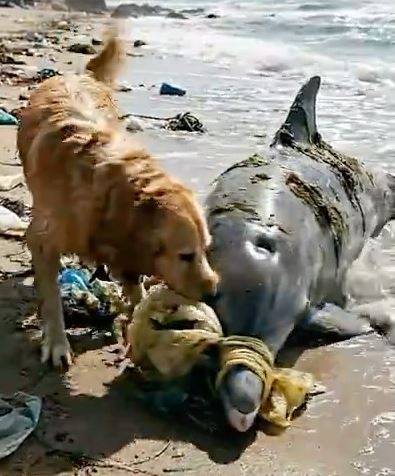— “You’re still stuck at home in a cast anyway — let my husband drive your car for a bit,” Tatiana said, her voice low and persistent.
“Would you like some tea? Or coffee?” Olga asked, limping slightly. One hand carried a plate of gingerbread cookies, the other brushed lightly across the windowsill in a subconscious attempt to tidy.
Igor sat on the floor beside their young son, Lesha, who was flipping through a colorful picture book. Quietly, Igor pointed out the drawings, avoiding the conversation between the women.
“Tea,” Sasha answered shortly, not taking off his jacket. He smelled faintly of tobacco and grease.
Olga nodded and made her way carefully to the kitchen. As she poured water into the kettle, she overheard Tatiana quietly mutter:
“At least it’s clean in here… Not like at your sister’s place.”
Olga returned with the tea, setting it down gently with a soft smile that masked the knot in her chest.
“Fresh gingerbread,” she offered. “Store-bought. With cinnamon.”
Tatiana took the cup, looking out the window. Sasha took a noisy sip.
Then Tatiana spoke, not looking at Olga.
“Since you’re home now, Sasha can use your car to pick up a few jobs. We could use the money.”
Olga almost spilled her tea.
“You mean… my car?”
“You’re not using it right now. And Sasha needs work. It would really help us out.”
Her tone was matter-of-fact, as though it were already decided.
“Tan…” Olga hesitated. “It’s the family car. I’ll need it again soon once the cast is off. So I’d rather not.”
“You’re home anyway,” Tatiana insisted. “We’re barely getting by, and you treat that car like it’s gold.”
Igor picked up Lesha and quietly left the room.
“I’m not trying to be difficult,” Olga said, her voice calm but unsure. “Maybe for a couple of hours — but carefully, please. The insurance is unrestricted, but it’s in my name.”
“Oh, don’t worry,” Tatiana said. “Sasha drives well. Right, Sash?”
Sasha said nothing, just took another sip of tea. Inside, Olga felt something shift — like a line had been crossed.
Two days later, Tatiana called. “Sasha’s headed to his parents’. They need help. He’ll take your car. Just for a short trip.”
“I…” Olga began.
“What, you don’t want to help?” Tatiana snapped. “People are going through tough times!”
Olga paused, then agreed quietly.
At lunchtime, Sasha and Tatiana showed up. Sasha took the keys silently, and they left. Later, a message arrived:
“He went on some errands. Will be back soon.”
But the night passed with the car still gone. In the morning — still no messages, no keys.
When they returned, the gas tank was empty. The cabin smelled of cigarettes, and there was a burn mark on the seat. A message came:
*“Didn’t have time to come up. Left the car locked. We’ll drop off the keys later.”*
“Tan, I needed it back—” Olga started.
“What is wrong with you?” Tatiana interrupted. “You’re being unreasonable. That’s why no one offers help — you always make it a problem.”
Olga quietly turned off her phone.
Later, her mother called, tone firm:
“Tatiana’s raising three kids. Couldn’t you just help without making a scene?”
“But they didn’t even bring the keys back,” Olga said, struggling to stay calm.
“A man without a job — it’s not easy. Think how you’d feel if Igor were in that position. Don’t turn this into something bigger.”
Igor heard it all, but only said, “Let’s not argue with family. They mean well.”
Olga sat in silence. Then she texted:
“Please bring the keys today. No more borrowing the car.”
Igor returned from the kitchen and said gently, “It’s family. Let’s not create distance over this.”
Olga didn’t reply. She looked out the window — the car was there. But it no longer felt like hers.
On the third day, she woke up after barely sleeping — Lesha had been crying through the night. She limped to the kitchen and looked outside. The car was gone again.
“Igor,” she asked, “can you check the street?”
He returned minutes later.
“No sign of it.”
“They took it again?”
“I didn’t say anything to them,” he replied. “They said they’d always bring it back.”
“But we never got the keys.”
“I don’t want to get involved,” he said. “This is between you and them.”
Olga sat back down. She messaged Tatiana again:
“Where is the car? Please return it today. I won’t be lending it anymore.”
An hour later, a voice message came:
“Sasha’s working. Took a client out of town. He’ll be back. Please don’t make this dramatic.”
But that night, he didn’t return. Nor did the car.
The next morning, Olga saw a social media story. Her car. Sasha driving. Upbeat music. Caption: *“Working.”* A route map. Proof.
She took a screenshot. Sat still. Then typed:
“If the car isn’t back in an hour, I’ll have to take action.”
Minutes later, Tatiana called:
“Seriously? You’d go that far? He’s helping people, working! And you’d report your own family?”
Olga didn’t respond. She ended the call.
By evening, the car was back. No one came upstairs. A short message followed:
“Your car’s back.”
Olga stared at the screen. No apology. No explanation. Just a dismissal. She replied:
“This crosses a line. Please don’t contact me again.”
Igor came in, paused, then turned away quietly.
“Don’t,” Olga said. “Please don’t say anything.”
She sat alone in the soft light, not angry — just tired. A quiet, final kind of tired.
The next morning, Igor had already left. A note on the table said, *“Back by noon.”* His coffee sat cold beside it.
She brewed tea, sat by the window. Her leg still ached. But inside, there was calm.
Scrolling through her phone, the story appeared again — cheerful music, business as usual. As if none of it mattered. As if her voice had been invisible.
She didn’t cry. Just closed the app. Walked to the closet. Found an old photo — she and Tatiana, as girls, bundled in matching winter jackets. Laughing.
She looked at it a long time. Then carefully returned it to the box, and closed it.
“That’s enough,” she whispered. “No more.”
The phone rang. Her mother.
“Tatiana’s upset. She said you threatened to report the car. That’s harsh.”
Olga listened. Then asked gently:
“How should family act when they keep taking without asking?”
There was silence. Then:
“You’ve always been stubborn. You never meet people halfway.”
“I know,” Olga said. “But I’ve also always kept quiet. I’m not doing that anymore.”
“It’s just a car…”
“It’s not. It’s about boundaries. About being respected. I’m not a resource — I’m a person.”
“Well, you’ll be alone with that attitude.”
“Maybe. But I’ll be at peace.”
She ended the call gently. Walked out to the balcony. The air was cool. Quiet.
That evening, Igor came home with groceries. He spoke about long lines. She listened, then said:
“You could have stood by me. Just once.”
He looked confused.
“You always make things complicated.”
“No,” Olga said. “I just stopped making them easy.”
That night, after Lesha finally fell asleep, she lay beside him. No fear. No anxiety. Just peace.
And in the morning, she realized she expected nothing anymore. And that… felt like freedom.
Her son stirred, reached for her. Nestled close.
She didn’t cry out loud. Just let silent tears fall — not from sadness, but from something older finally letting go.
He couldn’t speak yet. But she felt it in his small hand, resting on her chest.
For the first time, she belonged only to herself.




